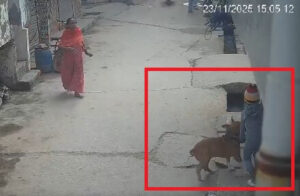Stop using pugs in advertisements, PETA urges Vodafone
Mumbai : Animal welfare organisation PETA India on Monday requested telecom company Vodafone to stop using pugs in its advertisement, saying that the “not normal dogs” are always in pain.

In a letter to Vodafone India Ltd CEO Sunil Sood, the PETA said that the pugs are genetically compromised species with exagerated features developed to look cute but this that cause them constant pain including difficulty in breathing.
A recent Vodafone ad featured about 30 pugs.
“These dogs have become popular in India, thanks largely to your commercials, and are purchased by people who are usually unaware that they’re severely compromised genetically by being bred for unnatural traits, such as tiny flat noses, bulging eyes, and folds of skin,” People for the Ethical Treatment of Animals (PETA) CEO Manilal Valliyate said in a letter.
Asking Vodafone to pass a policy prohibiting the use of animals, including pugs, in its advertising, he said that animals like pugs are used in entertainment where they they often become frightened and overwhelmed by the chaos, loud noises, bright lights, and countless retakes on film sets.
While the pugs typically face issues like dental disease, spinal deformities, intolerance of exercise, chronic irritation, pain, skin infection and eye problems, like lagophthalmos, or an inability to close the eyelid completely or to blink properly causing drying of the central cornea, he said they also have “an especially hard time in the heat… in India’s climate – and are susceptible to suffering from heatstroke and to collapsing and dying in high temperatures”.
“As a veterinarian and the CEO of PETA India, I’m writing to you on behalf of our more than 10 lakh members and supporters to urge you to stop using pugs in your advertising,” he said in his letter.
PETA said that unaware of their pain and several possible medical conditions, people often buy pugs and in many case later dump them.
“One Delhi group found four abandoned pugs in a span of just 10 days,” PETA said.
“They face physical deterioration, neglect, abandonment, or even death when their guardians fail to recognise medical issues, can’t afford to pay their veterinary bills, or refuse to provide them with the care that they require,” the letter said.
IANS





